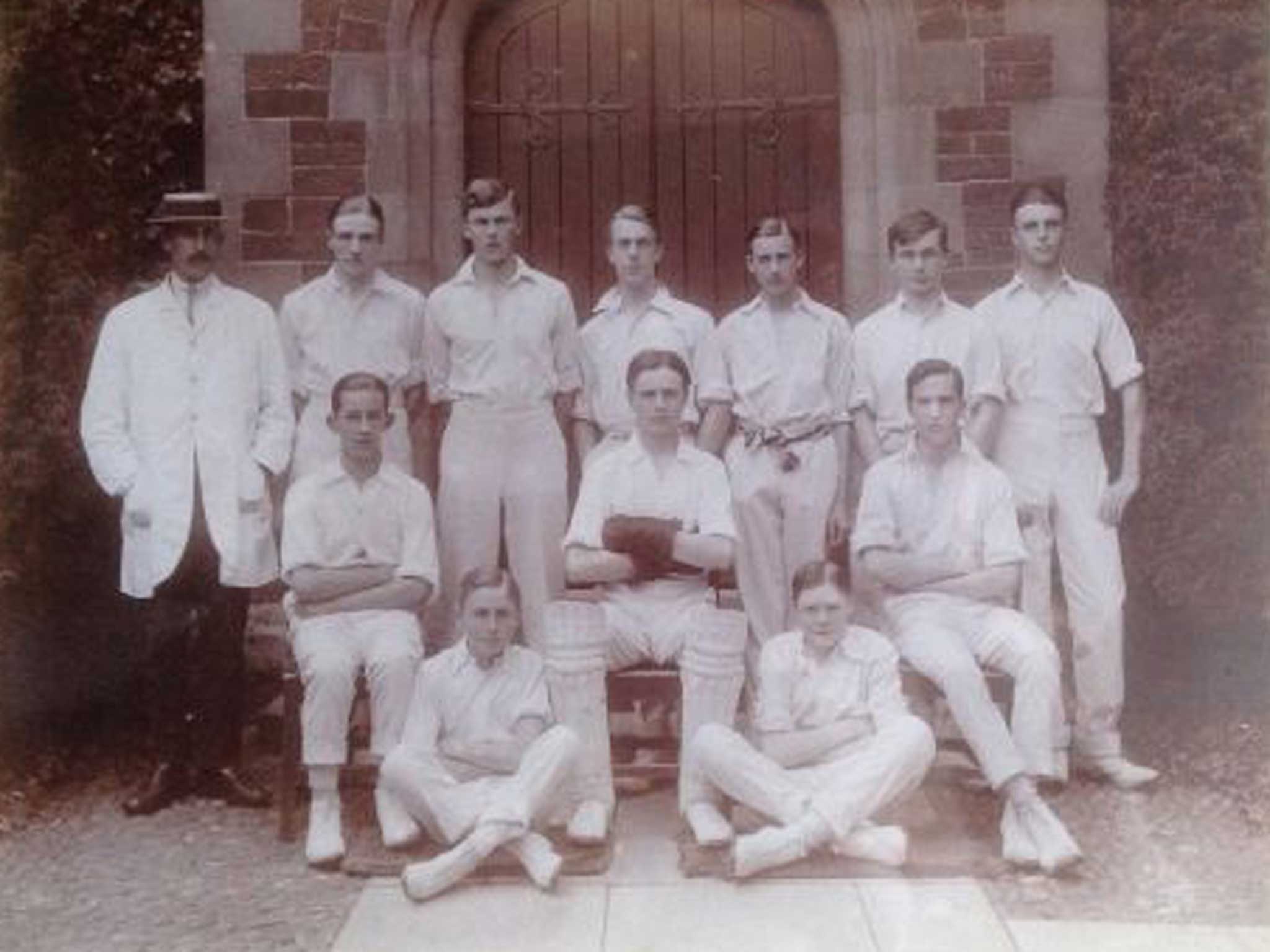They fell with their faces to the foe: honouring the game's heroes of the Great War
Roland Boys Bradford VC became the youngest general in the British Army 10 days before his death at Cambrai

The slaughter inflicted upon a young generation of Britons during the First World War can rarely have been more clearly illustrated than in the fate of the 1914 cricket team at Oakham School. A new book, Wisden on the Great War*, relates how five of the 11 boys perished in the conflict.
Their names read like a roll call of death: Douglas Hall, aged 21, killed in 1916; William Hill (22), died of wounds as a prisoner of war five days before the Armistice; James Atter (19), killed 1916; Herbert Wait (19), killed 1917.
That is only the back row. The dates and ages act as a cruel reminder of a game obsessed by statistics. One of the survivors, Percy Chapman, would go on to captain England at The Oval in 1926 when they regained the Ashes for the first time since the advent of war.
This is one of many fascinating discoveries made by Andrew Renshaw. Taking the 1,788 obituaries listed in the Wisden Cricketers' Almanack during the war years, he has verified the entries with the Commonwealth War Graves Commission and added copious material – including the discovery that three of the casualties listed did not die after all.
Alongside Colin Blythe, one of the greatest bowlers of his era, who was hit by a shell near Passchendaele in 1917, there is Rupert Brooke, who "had gained considerable reputation as a poet" and whose main claim to fame in Wisden was to have topped the bowling averages at Rugby School in 1906; George Llewellyn Davies, one of five brothers "adopted" by JM Barrie who were to form the inspiration for Peter Pan; and Percy Jeeves, the Warwickshire all-rounder who so impressed PG Wodehouse in a county match that he named Bertie Wooster's valet after him.
In The Wisden Book of Cricketers' Lives, editor Benny Green complained that most of the Great War obituaries "hardly belong in a record book whose avowed intent is to record the feats and fates of first-class cricketers". And yet it is with these lesser mortals, lads barely out of school who never got to live their lives, that the real interest lies after Renshaw's estimable research.
Take, for example, Roland Boys Bradford, who became the youngest general in the British Army 10 days before his death at Cambrai, aged 25. He had been awarded the Victoria Cross at the Somme, and we also learn that his brother George won a VC too, in a naval engagement at Zeebrugge. They are the only siblings to both receive the accolade in the First World War; a third brother, James, won the Military Cross, and a fourth, Tommie, received the Distinguished Service Order – he was the only one to survive the war.
Tommie was the real cricketer among them, and in 1911 he hit a double century in an hour and a half with 17 sixes, a record score in the Durham Senior League. He died aged 80 without receiving an obituary in Wisden. Thanks to Renshaw's scholarship we will remember him and his three ill-fated brothers in arms.
Then there is Harold Forster, whose death was missed by Wisden but Renshaw has unearthed him – one of 89 new obituaries among the 289 first-class cricketers who died – as the player with the most awards for gallantry (DSO and Bar, MC and Bar). Wisden's omission of his feats even extended to his performance on the field: on his debut for Hampshire against MCC at Lord's, he took nine wickets in the match but was not mentioned in their report.
The wartime Wisdens sold surprisingly well given the lack of actual cricket they contained – county cricket was abandoned just before the end of the 1914 season – and they have since become rare and very valuable.
One of the final entries concerns Reginald Edwards, who died in 1925 of complications from a severe gas attack. During an expedition to Russia he lost all his baggage apart from his collection of Wisdens, "which accompanied him on all his travels". Clearly whoever relieved him of his burdens had no idea how much his little brown books were worth.
* Published in hardback by John Wisden & Co, £40
Join our commenting forum
Join thought-provoking conversations, follow other Independent readers and see their replies
Comments
Bookmark popover
Removed from bookmarks